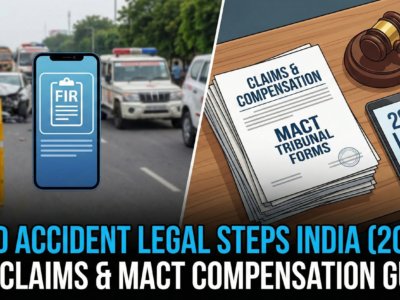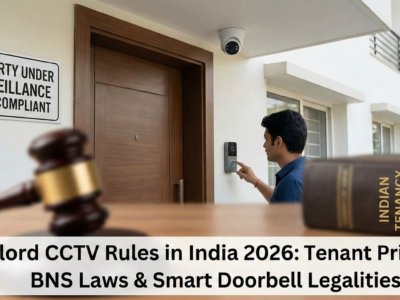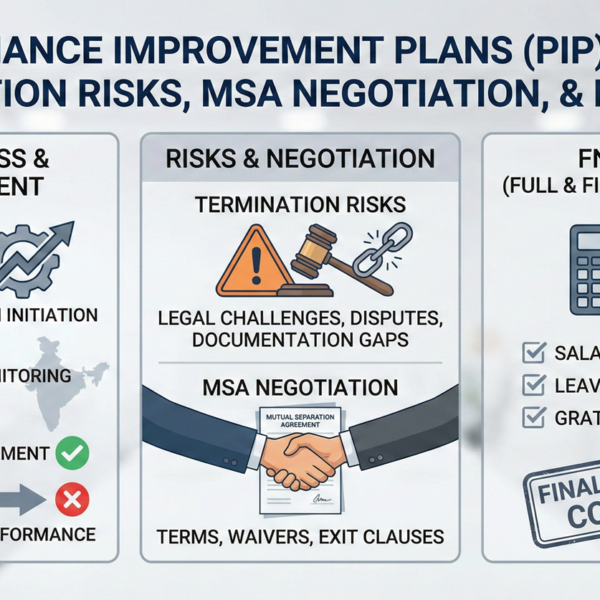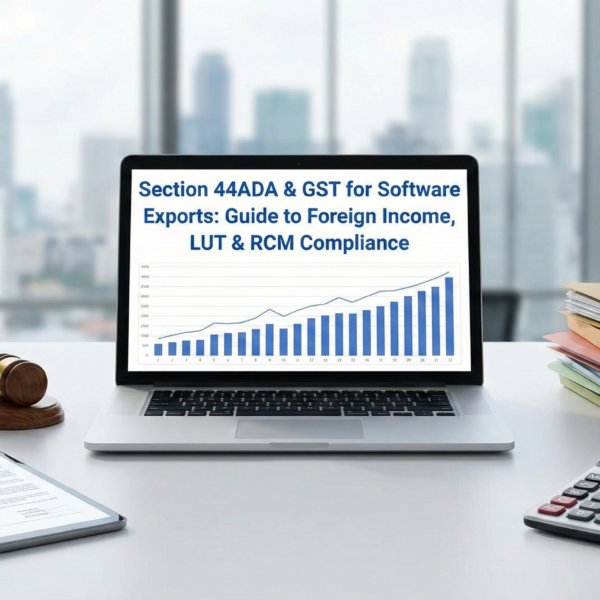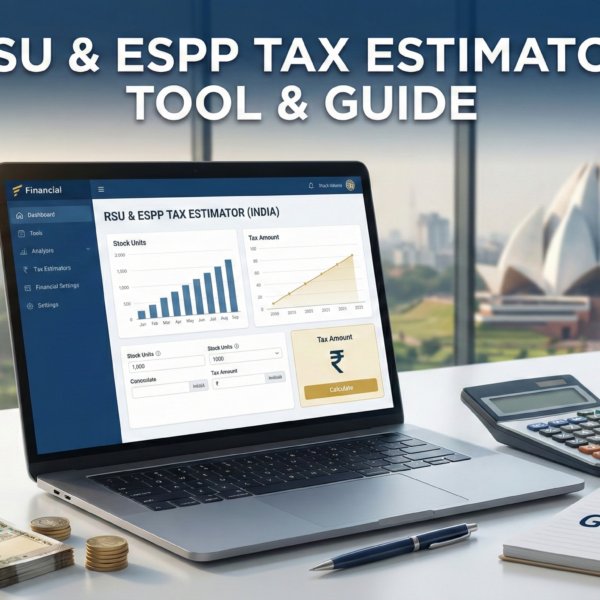Waited months, or even years, for your hard-earned gratuity? That delay isn’t just frustrating—it’s costing you money. The law is clear: if your employer pays your gratuity more than 30 days late, you are automatically entitled to 10% simple interest on the entire amount. This isn’t a bonus or a favor; it’s your statutory right under Section 7(3A) of the Payment of Gratuity Act.
This comprehensive 2025 playbook from evaakil.com is your definitive guide to moving from entitlement to encashment. We’ll break down the law, provide an interactive calculator to find out exactly what you’re owed, and give you the document templates you need to file your claim with confidence.
The Employee's Playbook for Enforcing Statutory Interest on Delayed Gratuity
A Step-by-Step Guide to Understanding Your Rights and Securing Your Full Dues Under Section 7(3A) of the Payment of Gratuity Act.
Gratuity and Interest: An Inalienable Right
Gratuity is not a gift from your employer; it's a deferred wage you've earned through years of service. Understanding this is the first step to empowerment. When this payment is delayed, the law provides a clear remedy: mandatory interest to compensate you for the loss.
Deferred Wage, Not a Bounty
The law views gratuity as your property, earned through service. You are not asking for a favor; you are demanding your rightful dues.
The 30-Day Automatic Trigger
An employer's liability to pay 10% interest is automatic. It starts by law the moment the 30-day payment window closes. No demand or court order is needed.
Compensation for Deprivation
The interest is not a penalty. It's compensation to you for the financial loss and opportunity cost of being denied access to your own money.
The Legal Bedrock: Deconstructing Section 7(3A)
The Payment of Gratuity Act, 1972, is crystal clear. It places a proactive duty on the employer and outlines a non-negotiable consequence for delay. Here's a breakdown of the key provisions.
Gratuity Becomes Payable
Day of retirement, resignation, etc.
30-Day Payment Window
Employer's mandatory duty to pay.
Delay Occurs (Day 31+)
10% interest liability is triggered automatically.
The Only Exception: A High Bar for Employers
The Act provides a single, narrow exception in the proviso to Section 7(3A). An employer can avoid paying interest ONLY if they meet **both** of these stringent conditions:
- The delay is proven to be the **fault of the employee**.
- The employer has obtained **prior written permission** from the Controlling Authority to delay the payment on this specific ground.
In practice, this is a procedural hurdle that employers rarely clear, making your claim for interest almost absolute in most cases.
The 10% Mandate: A Judicially Enforced Standard
The 10% interest rate is not a suggestion; it's a fixed mandate based on Central Government Notification No. S.O. 873(E) from 1987. The nation's highest courts have consistently upheld this rate, rejecting any attempts by employers to pay less.
| Court | Key Finding | Impact for Employees |
|---|---|---|
| Supreme Court of India | Held that "interest on the delayed payment of gratuity has to be at 10%, without any excuse." Overturned lower court orders that awarded lesser rates. | Establishes 10% as the non-negotiable national standard. |
| Calcutta High Court (2025) | Ruled that interest is automatic and statutory. An employee does not even need to "pray for" it in their application. It is the authority's duty to award it. | Removes procedural hurdles and simplifies the claim process. |
| Bombay High Court | Affirmed that internal disputes within the employer's management are not a valid reason to deny an employee their statutory dues, including 10% interest. | Protects employees from being penalized for the employer's internal issues. |
Calculate Your Dues Instantly
Use our interactive calculator to get a precise estimate of your total gratuity and the interest you are owed. Adjust the sliders and dates to see how the delay impacts your final amount.
Your Estimated Dues
The Game Changer: 2025 Calcutta High Court Ruling
A landmark 2025 judgment from the Calcutta High Court in Himangshu Karmakar v. Food Corporation of India has powerfully reinforced employee rights, removing common procedural roadblocks used to deny interest claims.
The Core Issue: "No Specific Prayer" for Interest
The Controlling Authority had rejected an employee's claim for interest on a five-year delay solely because the employee hadn't explicitly "prayed for" or requested interest in his application. The High Court decisively struck down this reasoning.
Key Takeaway 1: Interest is Automatic, Not Discretionary
The Court ruled that interest is a statutory right that accrues automatically by law. It's not a separate award that an authority can grant or deny. If payment is delayed, interest is payable. Period.
Key Takeaway 2: The Authority's Duty is to Calculate, Not Adjudicate
The judgment clarifies that an employee doesn't need to ask for interest. It is the legal duty of the Controlling Authority to calculate and award it suo motu (on its own motion) once a delay is proven.
The Punitive Warning: A Powerful Deterrent
Significantly, the High Court added a powerful deterrent against further non-compliance. It ordered that if the employer failed to pay the calculated interest within 30 days of the judgment, that interest amount would itself attract further **penal interest at 18% per annum**. This "interest on interest" serves as a strong warning to employers that defying legal orders will be financially costly.
Know Your Forms: The Paper Trail to Your Claim
The process involves specific forms prescribed under the Payment of Gratuity Rules. Understanding their purpose is key to a smooth process.
Form 'I'
Your initial application to your employer for payment of gratuity. Submitted after your employment ends.
Form 'N'
The crucial application for direction to the Controlling Authority if the employer fails to pay, pays less, or disputes your claim.
Form 'L'
The notice your employer is supposed to send you, admitting the claim and specifying the amount and date of payment.
Your Action Plan: From Calculation to Claim
Knowing your rights is the first step. The next is to take action. Follow this simple two-stage process to formally claim your dues.
Stage 1: Approach the Controlling Authority
File a formal application for direction with the jurisdictional Controlling Authority (usually the Deputy Labour Commissioner). Use the prescribed form (e.g., Form 'N' under Central Rules).
- Clearly state the facts of your employment and the delay in payment.
- Attach your calculation sheet.
- Cite the mandatory nature of Section 7(3A) and the recent Calcutta HC ruling.
Stage 2: The Final Recourse (If Needed)
If the authority fails to act, or the employer defies the order, you can file a Writ Petition in the High Court under Article 226 of the Constitution.
- This is an extraordinary remedy for administrative failure.
- A Writ of Mandamus can compel the authority or employer to perform their statutory duty.
- Grounds include violation of statutory rights and constitutional rights to property and life.
Document Templates
Use these annotated templates as a guide for your filings. It is always recommended to consult a legal professional, but these templates provide a strong foundation for your claim.
BEFORE THE CONTROLLING AUTHORITY UNDER THE PAYMENT OF GRATUITY ACT, 1972
JURISDICTION: [e.g., Kolkata, West Bengal]
APPLICATION NO: __________________ DATE: __________________
BETWEEN:
[Your Full Name]
[Your Address]
... APPLICANT
AND
[Full Name of the Employer Company/Establishment]
[Full Address of Employer]
... OPPOSITE PARTY
APPLICATION FOR DIRECTION UNDER SECTION 7(4) OF THE PAYMENT OF GRATUITY ACT, 1972
The Applicant above-named most respectfully states as follows:
1. The Applicant was an employee of the Opposite Party, having served continuously for a period of [Number] years.
2. The Applicant's services with the Opposite Party ceased on account of [superannuation / retirement / resignation] with effect from [Date of Cessation].
3. Upon cessation of employment, the Applicant became entitled to the payment of gratuity. As per Section 7(3) of the Act, the Opposite Party was statutorily obligated to pay the gratuity amount by [Date 30 days after cessation].
4. The Opposite Party failed to comply with its mandatory duty. The principal gratuity amount of ₹[Principal Amount] was paid only on [Date of Actual Payment], after a delay of [Number] days.
5. THE DISPUTE: The dispute pertains to the non-payment of statutory simple interest on the delayed gratuity. As per Section 7(3A) of the Act, the delay automatically triggers the liability to pay simple interest at 10% per annum from the date the gratuity became payable until the date it was actually paid.
6. It is submitted that the payment of interest under Section 7(3A) is mandatory and non-discretionary, as held by the Hon'ble Supreme Court and affirmed by the Hon'ble Calcutta High Court in Himangshu Karmakar v. FCI (WPA 8398/2025).
7. The Applicant has calculated the interest due as per the statutory formula, which amounts to ₹[Interest Amount]. A detailed calculation sheet is attached as Annexure-A.
PRAYER
In light of the above, the Applicant humbly prays that this Hon'ble Authority be pleased to:
a) Determine the amount of statutory interest payable.
b) Issue a direction to the Opposite Party to forthwith pay the sum of ₹[Interest Amount] to the Applicant.
[Your Signature]
APPLICANT
VERIFICATION
I, [Your Name], do hereby verify that the contents of the above application are true to the best of my knowledge.
GROUNDS FOR WRIT PETITION
A. FOR THAT the action of the Respondent-Employer in not paying statutory interest violates its mandatory duty under Section 7(3A) of the Payment of Gratuity Act, 1972.
B. FOR THAT the inaction/impugned order of the Respondent-Controlling Authority is illegal, arbitrary, and a dereliction of its statutory duty to enforce the Act's provisions.
C. FOR THAT the law on mandatory payment of 10% interest is conclusively settled by the Hon'ble Supreme Court and the Hon'ble Jurisdictional High Court. The Authority's failure to follow binding precedent is a grave error of law.
D. FOR THAT gratuity is property under Article 300A of the Constitution. The unlawful deprivation of the interest component violates the petitioner's constitutional right to property.
E. FOR THAT the denial of timely post-retiral dues, including compensatory interest, adversely affects the petitioner's right to a dignified life and livelihood under Article 21 of the Constitution and is arbitrary and unreasonable, thus violating Article 14.
Navigating the System in West Bengal
The first step is to determine the "Appropriate Government" for your case. For most private sector establishments, shops, factories, and state government undertakings located solely within West Bengal, the appropriate government is the Government of West Bengal. For establishments belonging to the Central Government, having branches in more than one state, or in sectors like major ports, mines, oilfields, and railways, the appropriate government is the Central Government.
For state-level jurisdiction in West Bengal, the Controlling Authority is typically an officer of the Labour Department, not below the rank of a Deputy Labour Commissioner. The West Bengal Payment of Gratuity Rules, 1973, govern the procedure, and Rule 10 allows you to file an application for direction if your employer fails to pay.
Key Controlling Authority Offices
| Jurisdiction / Region | Office | Address |
|---|---|---|
| Kolkata (Central Sphere) | Dy. CLC(C) / RLC(C) | Nizam Palace, 234/4, A.J.C. Bose Road, Kolkata-700020 |
| Howrah / South 24 Pgs (Central) | LEO(C) - II, Kolkata | Nizam Palace, 234/4, A.J.C. Bose Road, Kolkata-700020 |
| Siliguri / Darjeeling (Central) | ALC(C), Siliguri | Babupara, Ghosala Road, Siliguri, Darjeeling-734101 |
| Birbhum (State Sphere) | Deputy Labour Commissioner | Opp. BL&LR Office, Bolpur, Birbhum |
*Note: This is an indicative list. Please verify the correct jurisdiction for your establishment. "Central Sphere" applies to central govt undertakings, mines, major ports etc.
Frequently Asked Questions
Q: What is included in "Last Drawn Salary" for gratuity calculation?
A: It includes your Basic Salary plus Dearness Allowance (DA). It does not include bonuses, commissions, HRA, or overtime pay.
Q: What if I served for 20 years and 8 months? How is service period calculated?
A: For gratuity calculation, any period of service exceeding six months is rounded up to the next full year. So, 20 years and 8 months would be treated as 21 years.
Q: My employer says the delay was my fault for submitting paperwork late. Can they deny interest?
A: They can only deny interest if they can prove two things: 1) the delay was indeed your fault, AND 2) they obtained prior written permission from the Controlling Authority to delay the payment on that ground. Without that written permission, they are legally obligated to pay the interest.
Q: The recent Calcutta High Court ruling is from 2025. Is it applicable to my case in another state?
A: While a High Court's judgment is binding only within its own jurisdiction, it has strong persuasive value in other states. Your lawyer can cite it as a precedent to argue that the principles of mandatory, automatic interest are well-established and should be followed everywhere.
Conclusion: From Entitlement to Encashment
The legal framework governing the payment of interest on delayed gratuity is robust, clear, and overwhelmingly in your favor. The key principles are unambiguous:
- Gratuity is a deferred wage and a statutory right.
- Employers have a mandatory duty to pay it within 30 days.
- Failure to do so automatically triggers a liability to pay simple interest at 10% per annum.
- This right is absolute, non-discretionary, and does not require a specific demand.
Armed with this knowledge and the practical tools provided, you can move from a position of passive waiting to one of proactive enforcement. By methodically calculating your dues and approaching the correct statutory authority, you can confidently transform your legal entitlement into actual financial encashment.



